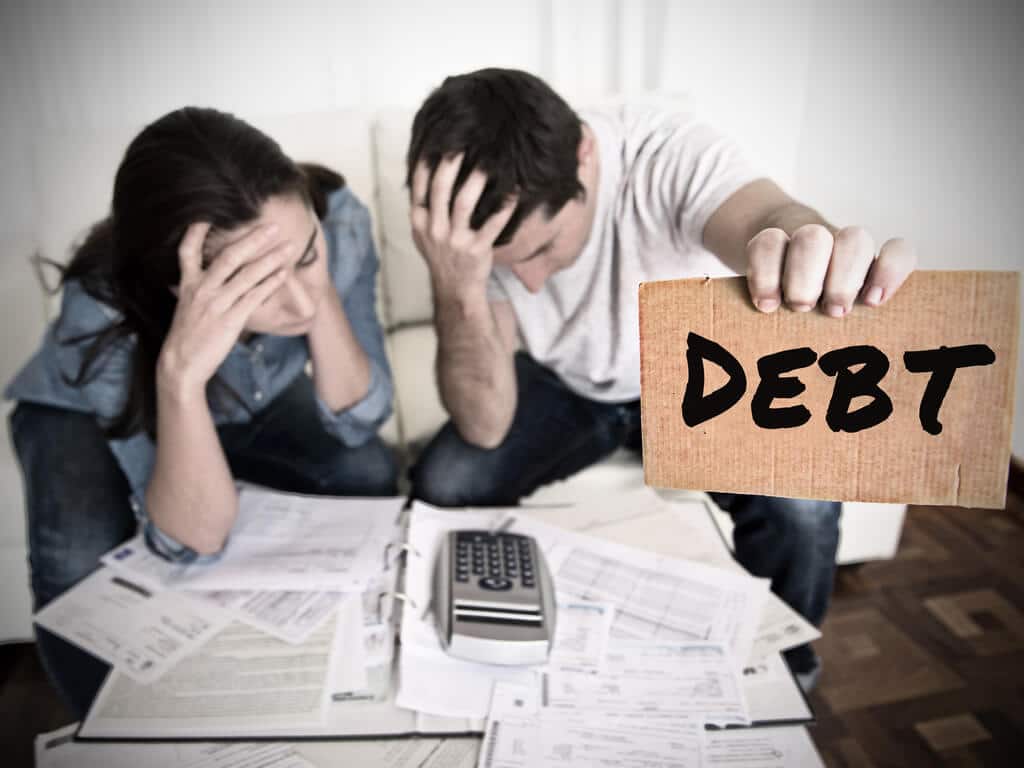Menu
The Cost Of Not Declaring Bankruptcy

When it comes to bankruptcy, many people begin to weigh the costs associated with filing instead of the long-term benefits of declaring bankruptcy. While it’s understandable that you have concerns about the cost of bankruptcy when you already have financial hardships looming, there are benefits to moving forward with a filing. With that, The Jones Law Firm breaks down the costs of not declaring bankruptcy.
#1. Credit card debts may have soaring penalty APRs, leaving you with larger bills.
Though some credit cards do not have APRs (annual percentage rates), many do, and without properly knowing what your penalty rates are, it can be difficult to know what the total costs of your late payments may be. Some credit card companies have penalty APRs that can be as high as 29.9 percent–when you calculate that into already high debts, your total cost can be quite a bit more than you realize.
Keep in mind that you can be required to pay that higher interest rate for six months after late or missed payments.
#2. If you rely on your retirement savings to pay off debts, you may face penalties on withdrawal, and then face financial hardship in your golden years.
Many people believe that because they place money into retirement accounts, they have a right to withdraw money at any point–but that simply is not true.
In many cases, it will be like taking a loan against yourself that you have to repay. And, if you can’t, you can face penalties from your bank or other financial institutions. Remember, the financial hardship can end with bankruptcy, but if you drain your 401k and other savings, it will cost you more in the future.
#3. Your credit score rebuilds after bankruptcy. But if you keep missing payments, it won’t.
Many individuals seeking financial relief think that the lasting implications of bankruptcy on their credit score make the process not worthwhile. However, when you are late on payments or simply not making them at all, your credit score will suffer anyway, making it difficult to secure loans.
But with bankruptcy, though it remains on your credit report for up to 10 years, you automatically begin to rebuild once you file and make monthly payments in Chapter 13, or you resume your financial life in Chapter 7.
#4. Wage garnishments are only taking the money you worked for.
Though wage garnishments can be a necessary part of the debt repayment process, it really is just pulling money you worked hard for and makes you feel uncomfortable in your work life.
By filing for bankruptcy, wage garnishments end under the automatic stay, and you then get control with your bankruptcy trustee to determine how much of your pay is going towards payments.
#5. You lose control when you let debts pile. Bankruptcy lets you regain it back.
Being in debt can make you feel like you have no control over your situation, but by filing for bankruptcy, you regain control of your financial life.
We often think of the cost as a financial element–but it’s so much more than that. The cost of not filing for bankruptcy can include your freedom, your home, and your ability to control what is yours.
#6. Defaulting on loans can be more damaging to your credit more than bankruptcy.
Bankruptcy ends debt collection by putting you on a payment plan under Chapter 13, or discharging debts in Chapter 7. However, when you default on a loan, the debt will be sold to a collection agency to collect on the amount owed. Or, the lender may attempt to sue you to garnish your wages or put a lien on your house to collect some of the profits. Ultimately, it will depend if the debts are secured or unsecured.
But whereas in bankruptcy your credit score is only impacted for years and starts to rebuild as soon as the discharge happens, with a default, your credit score is damaged and you can face a lawsuit.
The Cost of Not Filing Bankruptcy Is Far Greater Than Money–It’s Your Life.
The cost of not filing for bankruptcy is far greater than the monetary cost of filing. You want to regain control of your assets and your life. And bankruptcy with The Jones Law Firm can help you achieve it.
If you have questions about the cost of bankruptcy, contact Columbus, Ohio bankruptcy attorney Michael Zelasko today. Our free consultation will give you an idea of the form of bankruptcy that is right for you, and any costs associated with it.

